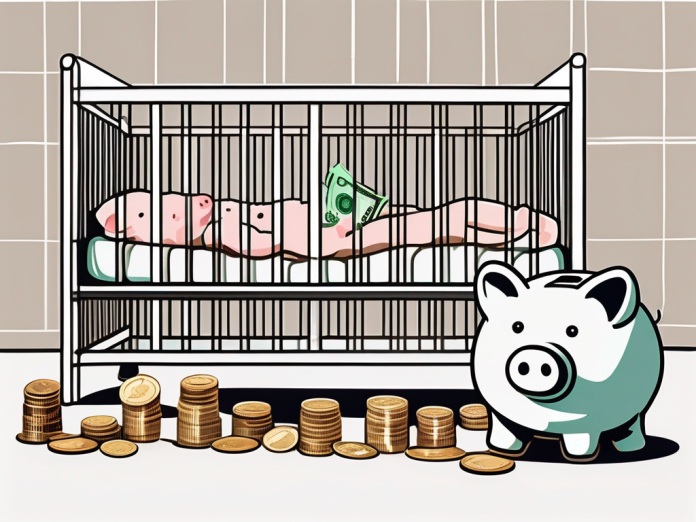Bringing a child into the world is undoubtedly an exciting and life-changing experience. But before diving headfirst into this new chapter of parenthood, it’s crucial to assess your financial readiness. The costs associated with having a baby can be significant and can place a strain on your budget if you’re not adequately prepared. In this article, we’ll explore the various financial considerations that you should take into account before embarking on this beautiful journey. So, let’s get started!
Understanding the Costs of Having a Baby
Before delving into the specifics, it’s crucial to understand the different categories of costs associated with having a baby. From initial expenses to ongoing financial commitments, it’s important to have a holistic view of what to expect:
Bringing a new life into the world is a beautiful journey that comes with its own set of financial considerations. Understanding the costs involved can help you prepare for this significant life change and make informed decisions for your growing family.
Initial Costs: From Pregnancy to Birth
The journey to parenthood often begins with pregnancy. From prenatal care to childbirth classes and hospital bills, these expenses can add up quickly. Factor in the cost of baby gear, nursery setup, and postpartum care, and you’ll realize the financial impact it can have on your budget. Preparation is key!
Additionally, it’s important to consider unexpected costs that may arise during pregnancy or delivery. Emergency medical procedures, extended hospital stays, or specialized care for complications can significantly impact your finances. Building a contingency fund can provide peace of mind during this exciting yet unpredictable time.
Ongoing Costs: Childcare, Food, and Health
It’s essential to consider the long-term financial responsibilities associated with raising a child. Childcare and education expenses, including diapers, formula, and baby food, can strain your budget. Don’t forget about healthcare costs, such as vaccinations, regular check-ups, and potential medical emergencies.
As your child grows, their dietary needs, healthcare requirements, and educational expenses will evolve. Planning for these ongoing costs early on can help you create a sustainable financial plan for your family’s future. Consider exploring health insurance options that cover pediatric care and researching affordable childcare solutions to manage these recurring expenses effectively.
Future Costs: Education and Extracurricular Activities
While it’s challenging to predict the future, it’s essential to plan for it. As your baby grows, their educational needs will arise. From preschool to college tuition, ensuring access to quality education requires financial investment. Additionally, consider the costs of extracurricular activities, such as sports, music lessons, and hobbies.
Investing in your child’s future through education and extracurricular activities can enrich their life experiences and provide valuable learning opportunities. Setting up a dedicated savings account or exploring education savings plans can help you financially prepare for their academic journey ahead. By planning ahead and budgeting for these future expenses, you can support your child’s growth and development while maintaining financial stability for your family.
Evaluating Your Current Financial Situation
Now that we’ve established a comprehensive understanding of the costs involved, let’s take a moment to evaluate your current financial situation. Having a clear picture of your income, savings, expenses, and debts will help you make informed decisions:
Assessing Your Income and Savings
Begin by examining your household income and savings. Consider factors such as your job stability, potential changes in earnings, and any financial safety nets you may have. Understanding your financial resources will enable you to gauge your capacity to handle the financial demands of caring for a child.
Reviewing Your Expenses and Debts
Take a closer look at your monthly expenses and debts. Identify areas where you can potentially cut back or make adjustments to accommodate the new financial responsibilities that come with a baby. Clearing high-interest debts before the arrival of your child can provide you with greater financial flexibility in the long run.
Considering Your Financial Goals
Reflect on your financial aspirations and objectives. Do you have any short-term or long-term goals? Consider how these goals align with the financial commitments that accompany raising a child. Create a realistic plan to achieve both your parenting and financial aspirations simultaneously.
Preparing Your Finances for a Baby
Now that you have a clear understanding of your financial standing, it’s time to make the necessary adjustments to prepare for the arrival of your little one. Here are some essential steps to help you on your way:
Creating a Baby Budget
A baby budget will be your guiding tool to ensure financial stability during the early years of parenthood. Account for all the expenses we discussed earlier, including diapers, food, healthcare, and education. Prioritize your spending and make necessary adjustments to accommodate these new financial obligations.
Building an Emergency Fund
The unexpected can happen at any time, and having a child only adds to the need for an emergency fund. Set aside a separate portion of your savings to handle unexpected expenses, such as medical emergencies or sudden changes in employment. An emergency fund will provide peace of mind during times of financial uncertainty.
Planning for Maternity/Paternity Leave
Be proactive in planning for maternity or paternity leave. Familiarize yourself with the options available to you, such as parental leave policies provided by your employer or government resources. Assess the financial impact of taking time off work and explore any supplemental income possibilities during this period.
Protecting Your Family’s Financial Future
Finally, as you embark on this beautiful journey of parenthood, it’s crucial to protect your family’s financial future. Consider these key elements:
Understanding Life and Health Insurance
Life and health insurance policies play a vital role in safeguarding your family’s financial security. Ensure you have sufficient coverage to protect your child and partner should the unexpected occur. Consider the type of coverage you need and seek professional advice if necessary.
Planning for Your Child’s Education
Start planning early for your child’s educational future. Explore savings accounts, scholarships, education plans, and grants that can ease the financial burden of higher education. The sooner you start, the more time you have to grow your savings.
Estate Planning: Wills and Trusts
Though it may seem morbid to consider at this stage, estate planning is essential to protect your child’s future in case the unthinkable happens. Draft a will, establish trusts, and nominate guardians for your child. By organizing these matters in advance, you ensure your child’s well-being in the long term.
Are you financially ready for a baby? Taking the time to evaluate your finances, adjust your budget, and secure your family’s financial future will give you confidence in embarking on this extraordinary journey. Remember, preparation is key, and by addressing the financial aspects of becoming a parent, you can focus on the joys and cherished moments that await you and your little one. Parenthood is a beautiful adventure that, with careful planning, can be financially satisfying and fulfilling.




























